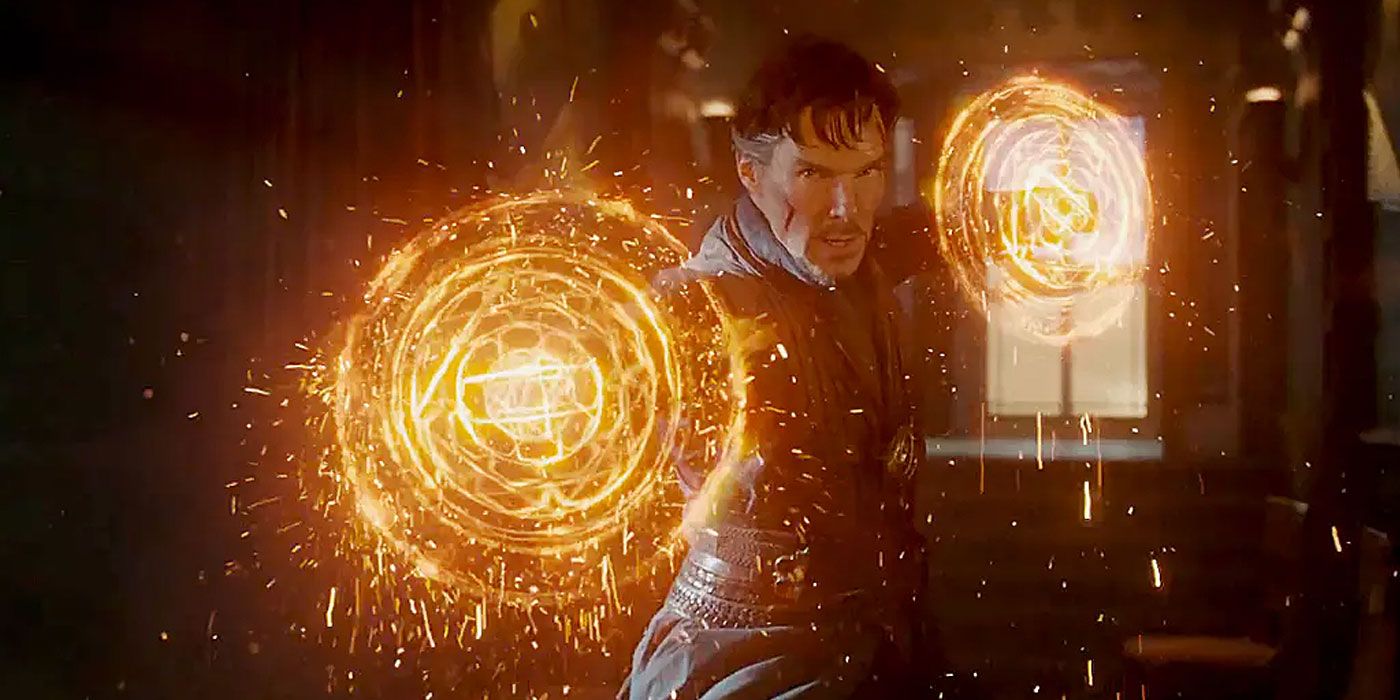It ain't broke, but the Marvel Cinematic Universe still needs to be fixed.
Counting "Doctor Strange," Marvel Studios has released a total of fourteen blockbuster films, and there are plenty more where that came from. Though stuffed with stunning visuals and big name stars, this fourteenth installment flags, and it all comes down to one core aspect: its adherence to the MCU formula.
RELATED: REVIEW: Doctor Strange Fails To Live Up To MCU Standards
If you've seen an MCU film, you're familiar with how these movies tend to go. An unlikely Hero or group of Heroes learn of the McGuffin, which is in the possession of -- or is being sought by -- the Villain of the film. Perhaps due to the limitations of a two-hour timeframe, the Villain generally isn't very fleshed out; he -- and it is always a man -- has relatively simple goals, from world domination to the acquisition of a company to rule of Asgard. The film generally ends with a climactic battle between the Hero(es) and the Villain, where the Hero(es) stop the Villain's nefarious plan and/or regain possession of the McGuffin. The film then draws to an end and promises the return of said Hero(es) in whichever MCU installment is up next.
In and of itself, the formula isn't a terrible thing; really, it depends on how the studio dresses it up. For instance, "Iron Man" is lightning in a bottle, the original MCU movie that will forever hold the title of The Film That Started It All. "Thor" plays the part of a Shakespearean drama. "Guardians of the Galaxy" is a rock-n-roll space opera. "Captain America: The First Avenger" is a historical piece, made distinct by its WWII setting.
And this is where "Doctor Strange" fails. Boiled down to its most basic elements, "Doctor Strange" is simply "Iron Man" redux, with a dash of "Thor." Like "Iron Man," "Doctor Strange" finds its arrogant protagonist in a terrible but life-changing situation, which then leads him to discover his secret inner "power" and overcome the Villain in the end. With a lead in need of learning some serious humility, Stephen Strange is an echo of Tony Stark with shades of Thor, and the film doesn't do much to avoid the comparison.
RELATED: Feige Teases Doctor Strange/Iron Man Team-Up in Avengers: Infinity War
Between the similar plot and similar protagonists, then, the story quickly becomes predictable; when predictable, the movie feels as though it has no stakes. Sure, we know Doctor Strange is going to appear in "Avengers: Infinity War" and (spoiler) "Thor: Ragnarok," but the film never leads the audience to suspend their disbelief. The character feels familiar; the story, more so, and that leads to a middling film instead of a great one. Throw in the controversies leading up to its release and the case of the Ancient One's whitewashing, and "Doctor Strange" has a few too many problems for one to sit through and simply enjoy, particularly in the case of longtime MCU fans.
Of course, "Doctor Strange" has its virtues. The visual effects are simply stunning, for instance. The kaleidoscope fight sequences are genuinely inventive and surprise at every turn; in short, the film fully embraces Steve Ditko's influence and truly benefits for it. What's more, the final "battle" between Strange and Dormammu is brilliant in its simplicity. However, these little touches simply can't keep the film afloat when considering the MCU at large.
Marvel Studios should consider "Doctor Strange" a warning sign. The MCU formula has worked thus far, albiet with a few dissenters here and there, but the films have largely been so enjoyable that their formulaic nature has largely flown under the radar. It's a very fine line to walk, and "Doctor Strange" appears to cross it, which thrusts the MCU into uncertain territory -- particularly considering that the MCU has other heroes to introduce.
Fortunately, "Black Panther" seems to be semi-safe from this very conundrum, as he was introduced in "Captain America: Civil War" and, thus, his story will likely be a continuation of what was started there. However, Marvel Studios has plans to introduce other heroes, up to and including "Captain Marvel," the studio's first headlining female superhero.
By the time "Captain Marvel" hits theaters, the MCU will have churned out twenty films, most of which follow the aforementioned formula. Nevertheless, if "Captain Marvel" meets a lackluster box office, it will likely be chalked up to the fact that the film features a female lead, rather than poor and/or tired storytelling -- much like its predecessors "Elektra" and "Catwoman," which were marked failures not just for their terrible execution, but for the fact they were led by women. As such, a formulaic origin story -- and "Captain Marvel" will almost definitely be an origin story -- could hurt not only the MCU, but also women-led superhero franchises.
Further, if Marvel Studios continues to "take chances" on more diverse heroes, those heroes could likewise be hurt by the MCU formula. While a diverse hero could add a distinct flavor to a film -- particularly an origin film -- any protagonist will flag under the weight of stale storytelling.
At this crucial point in the life of the MCU, Marvel Studios would do well to take more chances. The tried and true MCU formula is safe to be certain, but it's teetering ever closer to the boring side -- and the risks they take at this juncture may not even be all that risky, as the studio has established themselves very firmly in the public eye. A fix for "Doctor Strange" may have been as simple as showing the Sorcerer Supreme at the height of his power, then flashing back to show his origin. No matter which way you cut it, though, the MCU formula hindered -- rather than helped -- "Doctor Strange," and it may have much larger implications for the Marvel Cinematic Universe at large.

